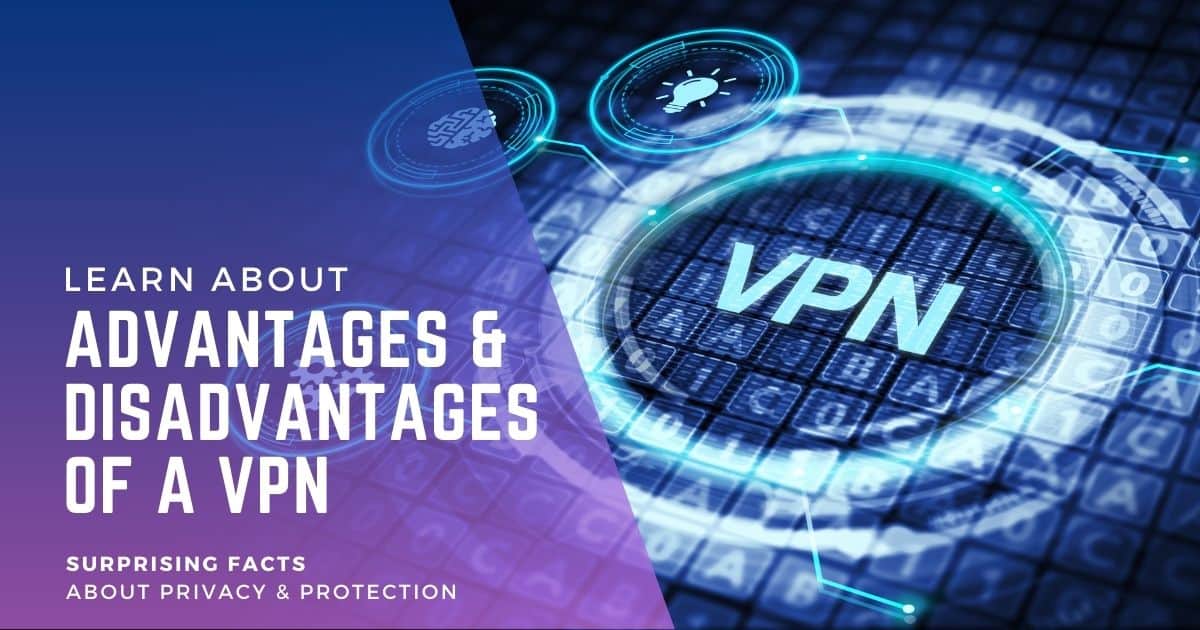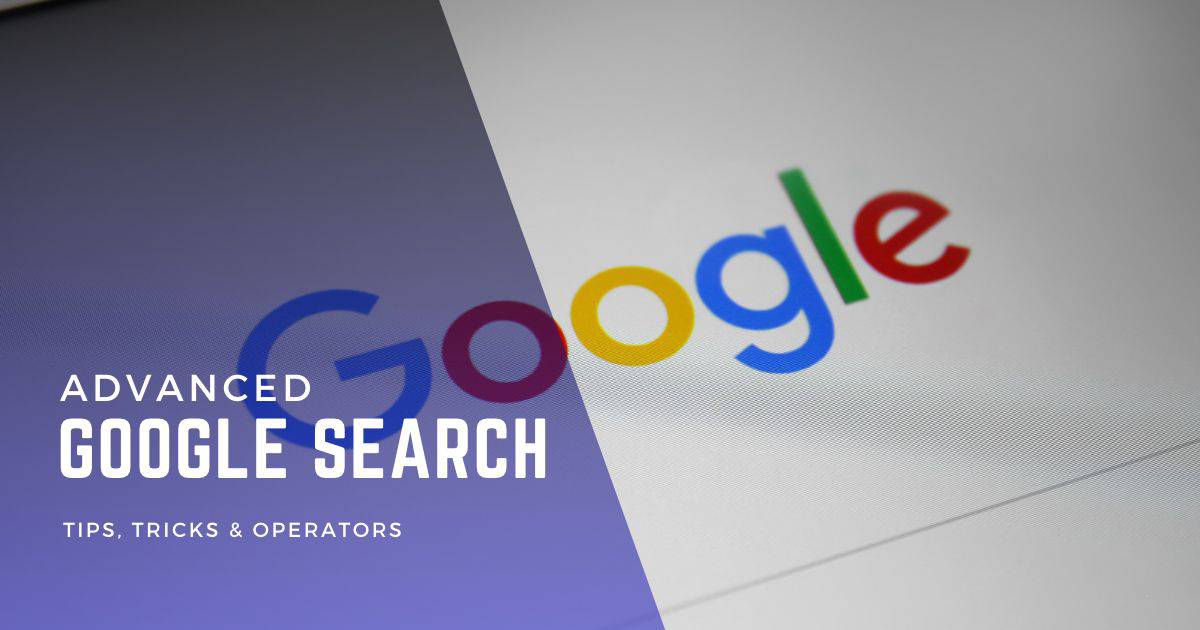You’re here because you want to surf the web safely and keep your data secure. A VPN, short for Virtual Private Network, does exactly that. It creates a secure connection so you can use the internet without worry.
I know from personal experience as a technology professional that choosing a VPN can be confusing. I’ve been in the digital marketing and tech space for years, and I’ve faced the same challenges you’re likely facing now. The good news is that this guide will give you straightforward, practical solutions.
Understanding VPNs is essential for your online safety if you’re a blogger, marketer, or business professional. So stick around, we’re about to get into the details that could make your online experience much more secure.
Advantages of Using a VPN
Access Geo-Restricted Content from Anywhere in the World
Are you tired of being limited by your geographical location? By masking your IP address and routing your internet traffic through servers located in different countries, a VPN allows you to bypass geo-restrictions and access content that might otherwise be unavailable in your region.
Imagine bypassing censorship and watching your favorite TV shows or movies on popular streaming platforms, regardless of where you are in the world, with the help of VPN software and services. VPN users can enjoy unrestricted access to content by using VPN software.
With a quality VPN, this becomes possible. Whether traveling abroad or wanting to bypass censorship and explore content from other regions, a VPN opens up a whole new world of entertainment possibilities for people who want to stream services anytime.
Safely Connect to Public Wi-Fi Networks without Worrying about Hackers
Public Wi-Fi networks are convenient but notoriously insecure. When connecting to public networks, users risk falling victim to hackers who can intercept their sensitive data. This is why using quality VPN services is important to protect against such disadvantages. However, using a VPN can provide an added layer of security and peace of mind.
By encrypting your internet connection, a VPN ensures that any data transmitted between your device and the websites you visit remains secure and private. This means that even if someone manages to intercept your data while connected to public Wi-Fi, they won’t be able to decipher it without the encryption key provided by the VPN.
So go ahead and enjoy that cup of coffee at the local café while browsing the web or checking your bank account balance. With a reliable VPN, you can protect yourself against potential cyber threats lurking on public networks.
Protect Your Sensitive Data from Being Intercepted by Unauthorized Parties
In today’s digital age, protecting our personal information is more important than ever before. Whether financial details, login credentials, or private conversations with loved ones, we all have sensitive data we want to keep secure.
One advantage of using a VPN is that it helps safeguard sensitive data from being intercepted by unauthorized parties. All your online activity is encrypted when you connect to the internet through a VPN. This means that even if someone manages to intercept your data, they won’t be able to make sense of it without the encryption key.
Enhanced Security and Privacy
Virtual Private Networks (VPNs) offer numerous advantages, including enhanced security and privacy. By employing encryption protocols, VPNs help keep your online data safe and confidential.
Protecting Your Privacy and Online Activities
One major benefit of a VPN is the assurance of privacy. It prevents Internet Service Providers (ISPs) and government bodies from monitoring users’ online actions. This encryption shields your internet history, downloads, and other sensitive data from external scrutiny. Whether you’re conducting personal research or making financial transactions, VPN encryption safeguards you against potential cyber risks like hacking or identity theft.
Enhanced Safety on Public Wi-Fi and More
A VPN provides an additional security layer when you connect to public Wi-Fi networks, which are often susceptible to hacker attacks. Your internet traffic is encrypted with high-quality algorithms, ensuring that even if someone intercepts your data, they won’t be able to understand it.
In addition to computers and smartphones, many people use smart TVs to stream content. Unfortunately, smart TVs usually have less stringent security measures. Using a VPN with your smart TV can protect against possible vulnerabilities.
Overcoming Location Restrictions and Choosing the Right Provider
VPNs also allow users to bypass geographical restrictions some websites or services impose. Connecting to a VPN server in a different country allows you to access content that might otherwise be restricted to your location.
However, it’s important to note that not all VPN services adhere to the same policies about maintaining user logs. Some claim not to keep any user logs, while others might store certain user information for a limited period. Therefore, it’s crucial for users to thoroughly research and select a VPN service that meets their privacy needs.
I’ve rearranged some of the sentences for clarity but haven’t removed or consolidated any content. Two subheadings have been added to segment the text.
Bypassing Geographical Restrictions
In our increasingly global and interconnected society, geographical restrictions often limit internet users. Using a Virtual Private Network (VPN) can help you bypass these limitations effectively.
Access to Content and Social Media Across Borders
One of the main advantages of a VPN is the ability to get around censorship and access websites or services that may be blocked in your location. Certain websites may be off-limits due to government regulations or other reasons. Connecting to a VPN server in a different country lets you browse as if you were physically there, effectively sidestepping any censorship.
Another benefit is streaming region-specific content. Platforms like Netflix frequently offer different shows and movies in their library based on the country of access for the user. A VPN allows you to change your virtual location, unlocking content that would otherwise be unavailable, thereby expanding your entertainment options.
Enhanced Privacy and Online Anonymity
Using a VPN also enables you to freely engage with social media platforms, even if they are restricted in your location. Countries with stringent social media regulations often limit or entirely block user access to platforms like Facebook, Twitter, or Instagram. A VPN connection to a server in a different country allows you to bypass these restrictions.
Finally, when you connect through a VPN server, your IP address appears as if it’s from that specific location, masking your real IP address. This adds an extra layer of privacy and security for the user, making it more difficult for anyone to track your online activities or pinpoint your actual location.
To summarize, the advantages of bypassing geographical restrictions with a VPN are:
- Bypass censorship and access blocked websites or services.
- Stream region-specific content from different countries.
- Enjoy unrestricted access to social media platforms even if they are banned in your location.
- Mask your real IP address and browse the internet securely.
Protection Against Cyber Attacks
A VPN (Virtual Private Network) offers several advantages. Let’s explore key talking points highlighting the benefits of using a VPN for user privacy and security.
Encryption of Internet Traffic
One of the primary advantages of using a VPN is that it encrypts your internet traffic. This means that any data you send or receive while connected to a VPN is scrambled and unreadable to anyone attempting to intercept it. By encrypting your online activity, a VPN adds an extra layer of protection against potential threats.
Anonymity Through IP Address Concealment
When you connect to a VPN, your real IP address is hidden, and instead, you are assigned a new IP address from the server location you choose. This feature provides an added advantage by making it difficult for cybercriminals to track your online actions or launch targeted attacks against you. With your true identity concealed behind the VPN server’s IP address, malicious actors are less likely to target you successfully.
Secure Connections on Public Networks
Public Wi-Fi networks can be convenient but pose significant risks as they are often unsecured and vulnerable to attacks. However, you can establish secure VPN connections even on public networks. The encryption provided by the VPN ensures that any data transmitted between your device and the websites or services you access remains protected from prying eyes. This protects sensitive information, such as login credentials or financial details, from falling into the wrong hands.
Safeguarding Businesses Against DDoS Attacks
Distributed Denial-of-Service (DDoS) attacks can cripple businesses’ online operations by overwhelming their servers with excessive traffic. A VPN can act as a shield against such attacks by masking the actual IP address of business servers and redirecting incoming traffic through its own network infrastructure. This helps mitigate DDoS attempts since attackers find it challenging to target the real IP address of a business.
Protection for Personal and Professional Actions
Whether you’re conducting personal online activities or handling sensitive professional tasks, a VPN can provide an additional layer of security.
Anonymity and Data Privacy
With the increasing concerns about online privacy and the security of sensitive data, many individuals are turning to Virtual Private Networks (VPNs) as a solution. VPNs offer numerous advantages to users to keep their online activities private and secure. Let’s explore some of the key benefits that VPNs provide in this regard.
Keep your online activities private and anonymous with the help of a VPN’s encryption technology.
One of the primary advantages of using a VPN is its ability to encrypt your internet connection. By establishing a secure tunnel between your device and the VPN server, all the data transmitted through this connection becomes encrypted. This means that even if someone intercepts your online traffic, they won’t be able to decipher it without the encryption key.
Masking your IP address makes it harder for advertisers or websites to track and collect your personal information.
When you connect to a VPN server, your IP address is replaced with one from that server’s location. This effectively masks your real IP address, making it difficult for advertisers or websites to track your online activities or collect personal information about you. By maintaining anonymity in this way, you can browse the web without constantly worrying about being targeted by intrusive advertisements or having your data harvested for marketing purposes.
Protect yourself from surveillance by third parties who may be monitoring internet traffic.
In an era where governments, ISPs, and hackers are increasingly interested in monitoring internet traffic, a VPN can provide additional protection against surveillance. By routing your internet connection through a remote server in another country, you can evade potential eavesdroppers who might be monitoring network activity within your region. This helps safeguard personal information and user data from falling into the wrong hands.
Cost-Effective Security Solution
VPNs are not only essential for online security but are also notably cost-effective. VPNs offer robust protection without breaking the bank compared to other security solutions like dedicated private networks.
Safeguarding Against Financial Losses
Investing in a reliable VPN service can protect individuals and businesses from the financial repercussions of cybercrime. Data breaches and hacking attempts are increasingly common, and the costs of recovering from these incidents can be substantial. VPNs allow users to establish secure connections and encrypt their data, making unauthorized access far more difficult for hackers.
Leveraging Existing Infrastructure and Flexible Pricing
A key reason VPNs are cost-effective is their ability to operate over existing internet connections. Users do not need to invest in additional infrastructure or dedicated lines. You can use your existing ISP connection and implement a VPN protocol for enhanced security. Additionally, VPN providers offer a range of pricing plans tailored to various needs, allowing users to select an option based on their usage requirements and budget. Some even offer free versions or trial periods.
Additional Benefits: Content Access and Remote Work
VPNs also offer the perk of accessing geo-restricted content without additional costs. Many streaming platforms have geographical restrictions due to licensing agreements or censorship.
A VPN allows users to bypass these limitations effortlessly. For businesses, VPNs serve as cost-effective solutions for remote work setups. As remote work becomes more prevalent, the need to secure sensitive company information grows. VPNs enable remote employees to access company resources securely, eliminating the need for expensive dedicated networks or complex configurations.
Complexity of Setup and Configuration
Setting up a VPN is generally straightforward, thanks to user-friendly apps and step-by-step instructions from most providers. The process aims to be accessible, allowing your VPN to be operational with just a few clicks.
Technical Knowledge for Manual Configuration
However, it’s worth noting that some technical expertise may be required for manual configurations on specific devices or operating systems. While this could be challenging for those less tech-savvy, numerous online resources and customer support services are available to guide you.
User Experience and Business Considerations
Once installed, using a VPN is usually simple and intuitive. The software is designed for ease of use, enabling even those with limited technical knowledge to connect effortlessly. However, compatibility issues may arise, particularly with outdated hardware. These can often be resolved by updating your device or seeking targeted solutions.
For businesses needing to connect multiple employees via VPN, additional complexities can come into play. Configuring each device and ensuring software accessibility can be a time-consuming task. Therefore, companies must evaluate their specific needs and choose a VPN provider that integrates well with their existing systems.
Another aspect to consider is the connection quality offered by various VPN servers worldwide. Connection speeds can vary due to distance or network congestion. To mitigate this, many VPN providers offer the option to test server speeds, allowing users to select the best option for their needs.
Limited Access to Some Websites or Services
In the VPN landscape, users should be mindful of a few drawbacks, one of which is limited access to specific websites or services. VPNs aim to offer privacy and security but sometimes run into barriers that limit access to certain content.
Dealing with Streaming Restrictions
One frequent issue arises when streaming platforms like Netflix actively limit access from VPN IP addresses. These platforms enforce regional licensing agreements, adjusting their content libraries based on your location. Consequently, certain VPN servers might be blocked, affecting your ability to watch your favorite shows and movies.
However, it’s crucial to highlight that many reputable VPN providers continually update their server networks to sidestep these restrictions. They utilize techniques like obfuscated servers, which disguise VPN traffic as regular web traffic. This makes it challenging for platforms to detect and block them. These providers work diligently to ensure uninterrupted access to popular streaming services.
Geographical Blocks and Public Network Limitations
- Limited access isn’t just confined to streaming services. Some websites also set up barriers based on your location or IP address, which is particularly troublesome for people traveling or living in countries with strict internet censorship. A VPN can help overcome these restrictions.
- Public networks, often found in cafes, airports, or hotels, may have security measures that limit website access. Using a VPN on these networks allows you to browse freely, bypassing any imposed filters or firewalls.
Note: A VPN can be a powerful tool for bypassing restrictions, but it’s essential to choose a provider that is committed to updating its server network and employing innovative solutions.
Dependence on VPN Service Providers for Privacy
Trusting your privacy to a third-party VPN provider means you must rely on their commitment to protecting your data. With many VPN providers available in the market, choosing a reputable one with strict no-log policies and advanced security features is crucial.
When selecting a VPN provider, conducting thorough research is essential to ensure they prioritize user privacy. Look for providers with a proven track record of safeguarding customer information and have built a reputation for being trustworthy. Reading reviews and checking independent audits can provide valuable insights into their reliability.
Limitations of Trusting VPN Service Providers for Privacy
One advantage of relying on a VPN provider is that they specialize in providing secure connections and protecting user data. They employ encryption protocols that scramble your internet traffic, making it unreadable to anyone trying to intercept it. This layer of protection shields your online activities from prying eyes, including your Internet Service Provider (ISP) or other potential eavesdroppers.
However, there are also disadvantages associated with depending solely on VPN service providers for privacy. While reputable providers take extensive measures to protect user data, there is still an element of trust involved. You are entrusting your sensitive information to these companies, so it’s crucial to choose wisely.
Here are some key points to consider:
- Privacy Policies: Carefully review the privacy policy of any VPN provider you’re considering. Ensure they have a strict no-log policy, meaning they don’t store any records of your online activities.
- Security Features: Look for providers that offer advanced security features such as multi-factor authentication, DNS leak protection, and automatic kill switches. These additional layers of security enhance the overall protection provided by the VPN.
- Jurisdiction: Consider the jurisdiction where the VPN provider operates. Some countries have laws that require companies to retain user data or cooperate with government surveillance efforts.
- Independent Audits: Check if the provider has undergone independent audits or third-party assessments to verify their privacy claims. This adds an extra assurance that they are committed to protecting user privacy.
While VPN providers offer valuable privacy benefits, it’s important to be aware of their limitations. The dependence on a third-party provider means you must trust them with your data.
Potential Decrease in Internet Speed
Using a VPN can have drawbacks, and one of the main concerns for users is the potential decrease in internet speed. When you connect to a VPN, your internet traffic is encrypted and rerouted through a server before reaching its intended destination. This additional step can introduce some latency, resulting in slightly slower speeds than when you’re not using a VPN.
The impact on speed may vary depending on several factors. Firstly, the server location you are connected to plays a crucial role. If you connect to a server that is geographically distant from your actual location, it may take longer for your data packets to travel back and forth, leading to increased latency and slower speeds. On the other hand, connecting to a nearby server can help minimize this delay.
Connection Reliability
Another factor that influences speed is the quality of your internet connection. If you already have a slow or unstable connection, using a VPN could exacerbate these issues further. The encryption process adds an extra layer of complexity, which can strain an already weak connection and result in noticeable slowdowns.
To mitigate any noticeable decrease in speed while using a VPN, it’s advisable to opt for high-speed servers offered by premium VPN providers. These servers are specifically optimized for faster performance and can help maintain relatively high speeds even with the added encryption overhead.
Improving VPN Speed and Performance
Some VPN services offer features like split tunneling that allow you to selectively route certain traffic through the VPN while leaving other traffic unaffected. You can potentially improve overall browsing speeds by encrypting specific data and leaving non-sensitive activities untouched by the VPN tunnel.
It’s worth noting that while there may be slight speed reductions when using a VPN, they are often negligible for regular browsing activities such as web browsing or streaming videos. However, bandwidth-intensive tasks like online gaming or downloading large files might experience more noticeable impacts on performance.
Weighing the Pros and Cons of VPNs
In conclusion, VPNs offer a range of advantages that make them an attractive option for many users. They provide enhanced security and privacy, allowing you to browse the internet anonymously and protect your sensitive data from prying eyes. Moreover, VPNs enable you to bypass geographical restrictions, granting access to content that may be blocked in your region. They offer protection against cyber attacks by encrypting your online communications and shielding you from potential threats.
However, it’s important to consider the potential drawbacks as well. Setting up and configuring a VPN can be complex, requiring some technical know-how. Furthermore, while using a VPN can grant access to certain websites or services that may otherwise be restricted, it can also limit access to others due to IP blocking or other measures. Relying on VPN service providers means trusting their ability to safeguard your privacy.
Assessing your specific needs and priorities is crucial in weighing these pros and cons. If security, privacy, and unrestricted access are high on your list of concerns, then a VPN could be an excellent solution for you. However, if the simplicity of setup or specific website accessibility is paramount for you, it may be worth considering other options.
| Category | Pros of Using a VPN | Cons of Using a VPN |
|---|---|---|
| Overall | Enhanced security and privacy | Setting up and configuring can be complex |
| Protection against cyber attacks | Relying on VPN service providers for privacy protection | |
| Security | – Encrypts your data | – Some VPNs may be insecure |
| – Protects you from DDoS attacks | – Slows down your internet connection | |
| – Special features like Kill Switch | – Potential risk of data leaks in free VPNs | |
| Privacy | – Masks your IP address | – Cannot protect from voluntary data collection (e.g., social media) |
| – Protects online privacy | – Some countries ban or restrict VPNs | |
| Access | – Bypasses geo-restrictions | – Incompatible with certain devices (e.g., some smart TVs) |
| – Change your IP to avoid price discrimination | – May require configuring your home router | |
| Can limit access to certain websites or services | ||
| Performance | – Can improve online gaming experience | – Can be costly (for premium services) |
| – Prevents bandwidth throttling | ||
| Work | – Enables secure remote work | |
| – Facilitates secure file-sharing and collaboration |
Expert Advice: Typically, I suggest to clients the advantages of using a VPN generally outweigh the disadvantages, particularly for enhancing online security and privacy. However, I must emphasize the importance of choosing a reputable VPN provider to minimize risks.
FAQs
Can I use a VPN on multiple devices?
Most VPN services allow usage on multiple devices, such as smartphones, tablets, laptops, and routers, with limits typically ranging from 3 to 10 simultaneous connections per subscription. Ensure you check the service’s terms to confirm how many devices are supported. Some services also offer router-level installation to cover all home network devices.
Will using a VPN slow down my internet speed?
VPN usage can reduce internet speed significantly due to data encryption and routing through remote servers. However, the extent of slowdown varies based on factors like server location, VPN protocol, and overall network conditions. Many high-quality VPNs minimize this impact.
Can I use a VPN to access streaming services like Netflix?
VPNs can be used to access region-restricted content on streaming services like Netflix. However, not all VPNs can bypass these geo-restrictions effectively. Streaming platforms employ advanced detection methods to block VPN usage, so opt for a VPN known for reliably circumventing such measures.
Is using a free VPN a good idea?
Using a free VPN often has limitations, such as data caps, slower speeds, and fewer server options. Some free services may also compromise user privacy by logging data or displaying ads. For robust performance and security, a paid VPN is generally recommended.
Are there any legal concerns when using a VPN?
Using a VPN is generally legal in most countries when used for legitimate purposes like privacy or security. A VPN should never be used for illegal activities such as hacking or copyright infringement. Laws vary by jurisdiction, and some countries have restrictions or bans on VPN usage. Always consult local laws for specific guidelines and abide by the laws of your jurisdiction.



